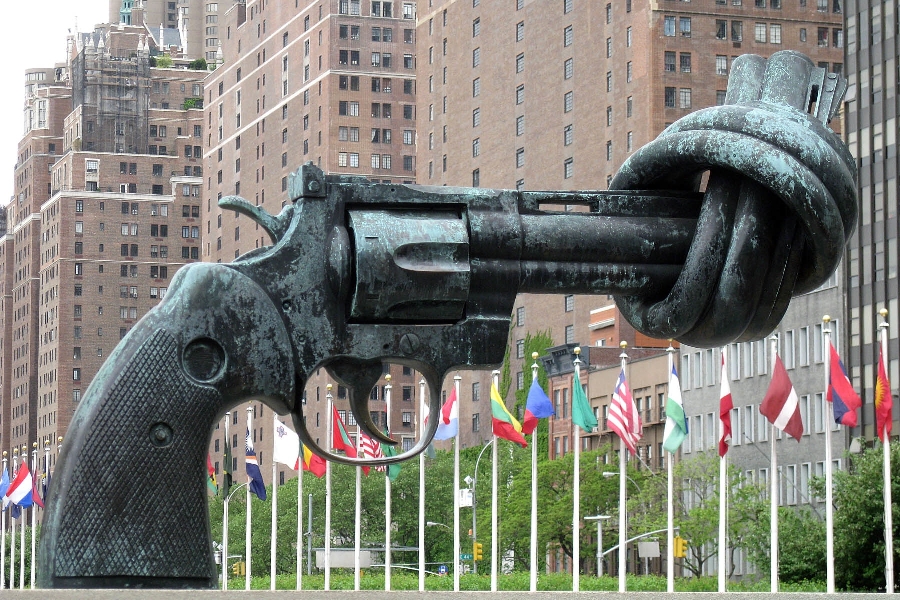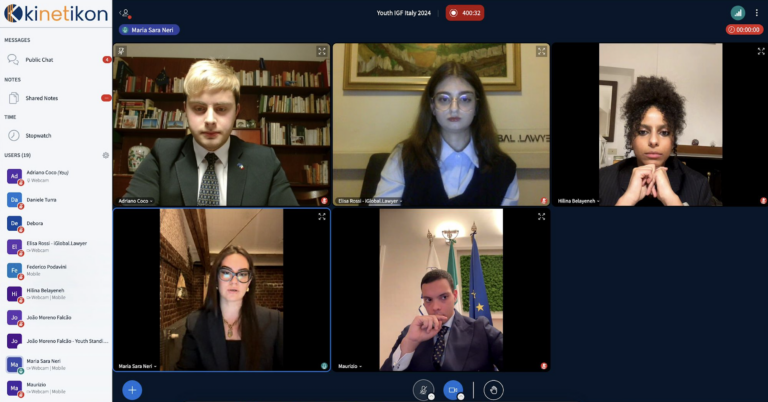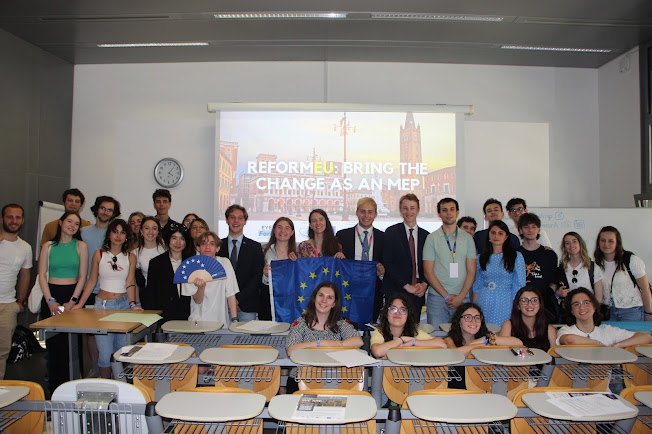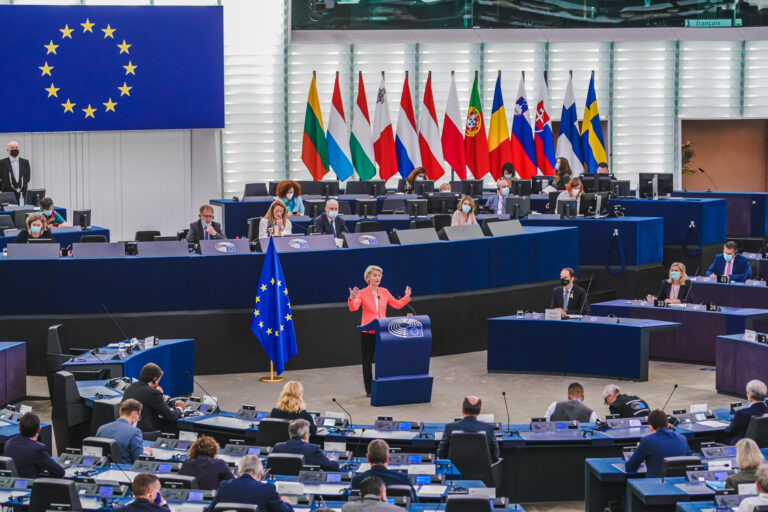Arms Control in Crisis: How Russian Aggression Challenges Humanitarian Treaties
In the wake of Russia’s aggression towards Ukraine, trust in international arms control regimes, particularly the Convention on Cluster Munitions and the Anti-Personnel Landmines Convention, is increasingly diminishing. Lithuania’s recent decision to exit the Convention on Cluster Munitions, citing regional security concerns and the need to improve its defence capabilities, marks a significant and troubling departure from a global consensus to minimise civilian harm during armed conflicts. This shift raises critical questions about the resilience of these humanitarian treaties and the broader implications for international security and human rights.
Lithuania’s parliament voted on July 18, 2024, to withdraw from the Convention on Cluster Munitions, citing regional security concerns, particularly Russia’s war on Ukraine. This decision reflects Lithuania’s view that adherence to the convention limits its defence capabilities. Defense Minister Arvydas Anušauskas emphasized the need for Lithuania to maintain all possible defence options, highlighting the evolving security landscape in the Baltic region (Perminas, 2024).
Humanitarian organizations such as Human Rights Watch and Amnesty International have strongly criticised this decision. When the Convention, adopted in 2008, came into force in 2010, it was seen as a significant milestone in international humanitarian law, aiming to eliminate the severe humanitarian impact of these weapons. Cluster munitions were extensively used in conflicts such as the Vietnam War (1960s-1970s), the Balkans (1990s), and the Middle East (2000s), causing significant civilian casualties and long-term dangers due to unexploded ordnance. Awareness and advocacy efforts by non-governmental organizations, particularly the Cluster Munition Coalition, highlighted the humanitarian impact starting in the 1990s and early 2000s, leading to the adoption of the Convention on Cluster Munitions in 2008.
The Convention prohibits the production, stockpiling, use, and transfer of cluster munitions. These weapons disperse multiple bomblets over wide areas, posing significant risks to civilians both during and after conflicts due to their high dud rates, which leave unexploded ordnance similar to landmines that can kill civilians even years later. Dud rates vary from 2 to 40 per cent (Cancian, 2023) and pose significant threats to civilians. At the same time, they are seen as highly effective. For example, analysis of cluster munition uses during the Vietnam War found it to be eight times as effective in producing casualties as standard high explosive projectiles (Cancian, 2023). Therefore, although 112 states ratified the Convention, major military powers like the United States, Russia, and China have not joined.
Heavy discussions are also occurring around another humanitarian disarmament treaty, the Convention on the Prohibition of the Use, Stockpiling, Production, and Transfer of Anti-Personnel Mines and their Destruction, called the Mine Ban Treaty. The Mine Ban Treaty came into force in 1999 after an international campaign led by non-governmental organizations, governments, and activists. Advocates of the Mine Ban Treaty sought to justify a universal ban by characterizing landmines as a humanitarian problem due to their indiscriminate effects on both combatants and non-combatants (Chacko & Davis, 2018).
Anti-personnel mines, which are cheap and easy to produce, were widely used in the 20th century. However, they continued to cause civilian casualties long after conflicts ended, which led to the creation of the International Campaign to Ban Landmines in 1992. The Mine Ban Treaty, adopted in 1997, has been ratified by 164 states. The Treaty mandates the destruction of stockpiles and includes mechanisms for reporting, consultation, and dispute resolution to ensure compliance.
However, considering Russian aggression against Ukraine, some states started questioning the Treaty. For example, following the 2023 Finnish elections, three out of four coalition parties in the government have expressed reservations about Finland’s continued adherence to the Mine Ban Treaty (Baxendale-Smith, 2023). This main argument was that the ban on anti-personnel mines limits Finland’s defensive capabilities, especially important given its extensive 1340-kilometre border with Russia. Similarly, in Estonia there is increasing support among right-wing political parties for withdrawal. This reflects broader Baltic anxieties over security in the face of Russia’s aggression against Ukraine.
The context provided by recent events in Ukraine emphasised the importance of these debates. Since Russia’s invasion in 2022, Ukraine has become heavily mined, with devastating consequences for civilians. The proliferation of mines, including advanced types like the Russian POM-3, which are difficult to detect and disarm, has underscored the lethal impact and enduring legacy of landmines in conflict zones. International efforts, including significant Western support for demining initiatives, highlight the global consensus on reducing the humanitarian impact of mines.
In this context, Finnish and Estonian deliberations on the Mine Ban Treaty balance national security imperatives with international humanitarian norms. Proponents of withdrawal argue for enhanced defence flexibility, while proponents of the treaty emphasize its role in global disarmament and moral leadership. The eventual decision to withdraw will not only shape the security policies in these countries but also carry implications for international security frameworks and efforts to mitigate the humanitarian impact of mines globally.
Both Lithuania’s decision to leave the Cluster Munition Ban Treaty and discussions in Finland and Estonia over the Mine Ban Treaty are signs of weakening support for humanitarian disarmament treaties worldwide. Withdrawing from these treaties may set a dangerous precedent, encouraging other countries to follow, potentially impacting not only the Russian war in Ukraine but conflicts globally. Western countries, which officially support and advocate for these treaties worldwide, can be seen as hypocritical when they abandon treaties considered important victories for human rights while promoting humanitarian warfare and human rights. This perceived hypocrisy undermines their credibility and may embolden other nations to disregard international norms, worsening global conflict dynamics. Moreover, the discussion on weakening humanitarian disarmament treaties might also influence the current discussion on the regulations of Lethal Autonomous Weapons Systems (LAWS), which, being capable of selecting and engaging targets without human intervention, are also particularly dangerous due to the potential for uncontrollable and indiscriminate use. Therefore, maintaining international standards for indiscriminate arts of weapons is crucial.
At the same time, the security concerns of European countries, especially Russia’s neighbours, should not be dismissed. It is important to emphasize that Russia is not a party to either treaty and already uses banned cluster munitions and anti-personnel mines in its war against Ukraine, giving it an advantage when its adversaries agree not to use certain weapons. However, rather than withdrawing from these crucial treaties, alternative approaches should be given priority. They could include investing in advanced technologies to enhance defence capabilities without resorting to banned weapons. Increased cooperation among EU nations on security measures, sharing intelligence, and developing joint defence initiatives can strengthen regional security without compromising humanitarian principles. By reinforcing commitments to humanitarian disarmament treaties and pursuing innovative defence strategies, countries can address their security concerns while maintaining their stance on human rights and international norms.
Bibliography
Amnesty International. (2024, July 18). Lithuania: ‘Disastrous’ decision to leave convention banning cluster munitions could put civilian lives at risk. https://www.amnesty.org/en/latest/news/2024/07/lithuania-disastrous-decision-to-leave-convention-banning-cluster-munitions-could-put-civilian-lives-at-risk/
Baxendale-Smith, B., & Winberg, H. (2023, September 27). Debate over Ottawa Treaty resurfaces in Finland amid Russian aggression. Wilson Center. https://www.wilsoncenter.org/article/debate-over-ottawa-treaty-resurfaces-finland-amid-russian-aggression
Cancian, M. F. (2023, July 11). Cluster Munitions: What Are They, and Why Is the United States Sending Them to Ukraine? Center for Strategic and International Studies. https://www.csis.org/analysis/cluster-munitions-what-are-they-and-why-united-states-sending-them-ukraine
Chacko, P., & Davis, A. E. (2018). Resignifying ‘responsibility’: India, exceptionalism and nuclear non-proliferation. Asian Journal of Political Science, 26(3), 352–370. https://doi.org/10.1080/02185377.2018.1486218
Lithuania: Don’t leave global ban on cluster munitions. (2024, July 15). Human Rights Watch. https://www.hrw.org/news/2024/07/11/lithuania-dont-leave-global-ban-cluster-munitions
Perminas, P. (2024, July 18). Lithuania leaves convention banning cluster munitions. lrt.lt. https://www.lrt.lt/en/news-in-english/19/2321829/lithuania-leaves-convention-banning-cluster-munitions
Wareham, M. (2024, April 4). US cluster munition transfers raise humanitarian concerns. Human Rights Watch. https://www.hrw.org/news/2024/04/04/us-cluster-munition-transfers-raise-humanitarian-concerns
Author: Agata Bidas







